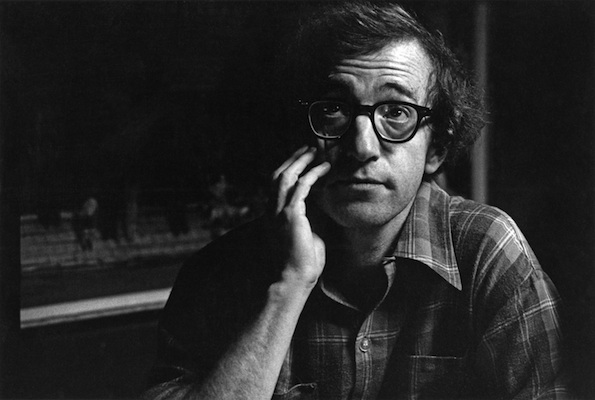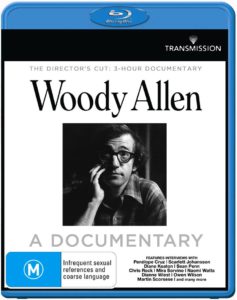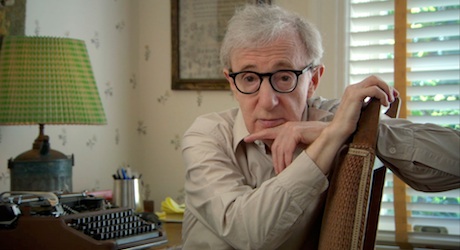A masterclass in one of the greatest filmmakers of the last six decades, offering unprecedented access to a man who has consistently turned out films every year since the 1960s.
[stextbox id=”grey” caption=”Disc Specifications” float=”true” align=”right” width=”220″]
Director: Robert B. Weide
Writer (s): Robert B. Weide
Runtime: 192 minutes
Starring: Woody Allen and more
Country: US
Audio: DTS HD-MA 5.1 English
Subtitles: English
Extras: Deleted Scenes, Interviews
Distributor: Transmissions
Rating: Certified Bitstastic (★★★★★) (?)
[/stextbox]
“I don’t want to be immortalised through my work,” Woody Allen once quipped. “I want to be immortalised by not dying”. Notoriously reluctant to step into the limelight and accept kudos for his body of work, he has been praised, purloined, denounced and deified by critics and audiences in equal proportion over the course of almost fifty films. Having previously produced or directed documentaries on comedy greats the Marx Brothers, Lenny Bruce and W.C. Fields – not to mention How to Lose Friends and Alienate People and episodes of Curb Your Enthusiasm – Robert B. Weide knows his way around comedy. Navigating the multi-faceted career of Allen may be his most loving project yet.
Weide’s overview, originally screened as part of the PBS American Masters series, is exhaustive. Presented in two parts, and running over three hours in total, Weide talks to almost everybody who has ever worked with Allen, including Antonio Banderas, Josh Brolin, Penelope Cruz, John Cusack, Larry David, Scarlett Johansson, Julie Kavner, Diane Keaton, Mariel Hemingway, Sean Penn, Chris Rock, Naomi Watts, Dianne Wiest, Owen Wilson and Martin Scorsese.
Coupled with rare interviews with Allen himself, we trace a career that began as a joke writer for other publications, and became one of the most unique voices in film. His filmography has spanned broad comedies like Bananas (1971), won Academy Awards for Annie Hall (1977), Hannah and Her Sisters and a Golden Globe for the sublime Purple Rose of Cairo (1986). He has combined comedy and tragedy in Crimes and Misdemeanors (1986), made outright dramas in Interiors (1978) and British thriller Match Point (2005).
Yet despite his many accolades, having more Academy Award nominations for screenwriting than any other person in history, Allen maintains many of the insecurities he had as an adolescent. Weide’s fandom may make the film too broad and ambitious in its scope, attempting to covering everything and glossing over some important details along the way. However, whether you are new to the works of one of the greats, or an Allen devotee, there is a goldmine of information in this film. If you don’t learn something new, then it is simply a reminder of why this driven filmmaker is so highly regarded, and why his continued dedication to the craft should be a large comfort to film fans everywhere. By any standard, Woody Allen: A Documentary is compulsory viewing.
The Disc
Using a mixture of archive and new footage, the 1080p transfer looks as pristine as one would imagine a modern documentary should be. The DTS-HD MA 5.1 track might be overkill, but it is welcome nonetheless.
Bonus features are scarce, and run for about 24 minutes in total. They mostly consist of deleted scenes, including additional bits of Woody taking us through his old neighbourhood, and a really long story from Mariel Hemingway about Woody’s visit to Idaho. There’s also an amusing 12 Questions with Woody Allen, all of which are intentionally silly. Finally, there’s a Director Interview with Weide, where he briefly discusses trying to get Allen’s permission for the doco.
Woody Allen: A Documentary was released on DVD and Blu-ray in Australia on 27 June 2012 by Transmission Films.






